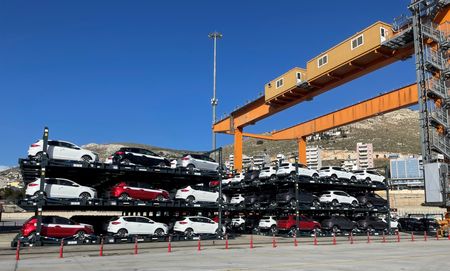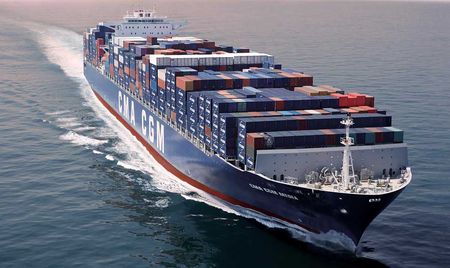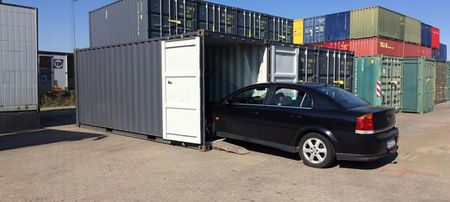Our company Auto4Export is ready to select, purchase and deliver any car you choose from the UAE.
High-quality loading and delivery to your country will be organized by us in the shortest possible time.
Contact our managers and get complete information on any questions you are interested in: - our agents
When it comes to shipping a car from the UAE to Tanzania, collaborating with a reputable car shipping company like Auto4Export ensures a smooth and stress-free process. With nearly 20 years of experience in the field, Auto4Export stands out as one of the best car shipping companies in the UAE. Our user-friendly car shipping website provides a seamless experience, offering top-notch services to meet your shipping needs.
How Much Does it Cost to Ship a Car to Tanzania?
The cost of shipping a car from the UAE to Tanzania varies based on factors such as the vehicle's size, shipping method (container or roll-on/roll-off), and the specific departure and arrival ports chosen. Generally, estimated car shipping costs range from $1,500 to $3,500 USD. Additional factors influencing the total cost include insurance coverage, customs duties, and any handling fees charged by shipping companies. For accurate pricing tailored to individual needs, it's advisable to consult with shipping experts who specialize in international car transportation to Tanzania.
How many days does it take to ship a car from UAE to Tanzania?
The average delivery time for shipping a car from the UAE to Tanzania typically ranges from 4 to 6 weeks. This timeframe can vary depending on factors such as the shipping method chosen (container or roll-on/roll-off), specific departure and arrival ports, and any potential delays in customs clearance processes. It's advisable for individuals to consult with experienced shipping companies that specialize in car transport to Tanzania to obtain more precise estimates based on current logistics and shipping schedules.
Departure and Arrival Ports
When shipping a car from the UAE to Tanzania, understanding the departure and arrival ports, shipping durations, and approximate costs is crucial for logistical planning. Here’s an overview based on common practices and logistics:
Ports of Departure from the UAE:
- Port of Jebel Ali, Dubai: One of the largest ports in the Middle East, offering extensive shipping connections globally.
- Port of Abu Dhabi: Located in the UAE's capital, it serves as another strategic departure point for international shipping.
Ports of Arrival in Tanzania:
- Port of Dar es Salaam: The main port in Tanzania, handling the majority of international cargo including vehicles.
- Port of Tanga: Located in northern Tanzania, also capable of receiving cargo shipments.
Approximate Prices for Shipping Cars:
The cost of shipping a car from the UAE to Tanzania can vary based on several factors including:
-
Container Shipping: Offers higher protection but tends to be more expensive.
- Estimated Cost: $2,000 to $4,000 USD.
- Shipping Duration: Approximately 5 to 6 weeks.
-
Roll-on/Roll-off (RoRo) Shipping: Generally less expensive and suitable for operable vehicles.
- Estimated Cost: $1,500 to $3,000 USD.
- Shipping Duration: Approximately 4 to 5 weeks.
Additional Considerations:
- Insurance: Consider purchasing insurance coverage for the car during transit to protect against potential damages.
- Customs Duties: Understand and prepare for any import duties or taxes levied by Tanzanian customs authorities.
- Documentation: Ensure all required paperwork including the Bill of Lading, export/import permits, and vehicle registration documents are in order to facilitate smooth customs clearance.
Conclusion:
Choosing the appropriate departure and arrival ports, understanding shipping durations, and estimating costs are critical factors when planning to ship a car from the UAE to Tanzania. Consulting with experienced shipping companies specializing in international vehicle transport can provide tailored advice and ensure compliance with all necessary regulations for a successful shipping experience.
Factors of price to ship a car to Tanzania
The cost of shipping a car from the UAE to Tanzania is influenced by several factors, and understanding these elements is crucial for accurate pricing. Here are key considerations:
1. Location in the UAE:
The distance between the vehicle's location in the UAE and the departure port significantly impacts the cost. Shipping from inland locations may involve additional transportation costs.
2. Method of Transportation:
The chosen shipping method, whether RoRo (Roll-On/Roll-Off) or container shipping, affects pricing. RoRo is generally more cost-effective, while container shipping provides extra security but comes at a higher cost.
3. Type of Vehicle:
The size, weight, and dimensions of the vehicle influence the shipping cost. Larger or heavier vehicles may incur higher fees.
4. Additional Services:
Optional services such as door-to-door delivery, insurance, and vehicle inspection contribute to the overall cost.
5. Seasonal Demand:
Shipping costs may vary based on seasonal demand. High-demand periods can lead to increased prices.
6. Customs and Duties:
Import taxes and duties imposed by Tanzania customs authorities should be considered in the overall cost.
Understanding these factors allows for a more accurate estimate of the total cost involved in shipping a car to Tanzania.
How to import a Car in Tanzania from the UAE?
Importing a car from the UAE to Tanzania involves several essential steps and the preparation of specific documentation. Here’s a concise guide on how to proceed:
-
Research Import Regulations: Understand Tanzania's import regulations for vehicles, including eligibility criteria, duties, and taxes.
-
Prepare Required Documents:
- Original Bill of Lading (BL)
- Original Purchase Invoice
- Proof of Ownership (Vehicle Registration Certificate)
- Import Permit from Tanzania Revenue Authority (TRA)
- Valid Identification (Passport or ID)
- Insurance Certificate
-
Shipping Arrangements: Select a reputable shipping company experienced in car transport to Tanzania. Choose the shipping method (container or RoRo) and arrange transportation from a UAE port (e.g., Jebel Ali or Abu Dhabi) to a Tanzanian port (e.g., Dar es Salaam or Tanga).
-
Customs Clearance: Upon arrival in Tanzania, coordinate with customs officials at the chosen port for clearance procedures. Pay applicable duties and taxes as determined by TRA.
-
Contact Tanzania Customs: Regulations and requirements may change, so it’s advisable to contact Tanzania customs directly or visit their website to confirm current import procedures and any additional documents needed.
Navigating the import process requires attention to detail and adherence to local regulations. For the most up-to-date information and personalized assistance, individuals should reach out to Tanzania customs or consult with a knowledgeable shipping agent specializing in vehicle imports to Tanzania. This ensures a smooth and compliant importation of the car from the UAE to Tanzania.
What year can a car be shipped to Tanzania?
In Tanzania, the permissible age of imported cars is generally restricted to vehicles that are 10 years old or newer from the year of manufacture. This regulation aims to control emissions and ensure imported vehicles meet modern safety standards. Importers must verify this information with Tanzania Revenue Authority (TRA) or customs officials to ensure compliance before shipping a car from the UAE. Understanding and adhering to these regulations is crucial to avoid complications during the importation process and ensure smooth customs clearance upon arrival in Tanzania.
Shipping Method for Shipping a Car to Tanzania
When considering shipping a car from the UAE to the Tanzania, various shipping methods are available, each with its own set of advantages and disadvantages. Here's an overview focusing on RoRo (Roll On/Roll Off) shipping, shared container shipping, and exclusive container shipping:
RoRo (Roll On/Roll Off) Shipping:
Advantages:
- Cost-Effective: RoRo shipping is often more budget-friendly than container shipping.
- Efficiency: Quick loading and unloading of vehicles as they are driven onto and off the ship.
- Ideal for Running Vehicles: Well-suited for operable cars.
Disadvantages:
- Exposure to Elements: Vehicles are exposed to weather conditions during the transit.
- Restrictions on Personal Items: Typically, personal items are not allowed inside the vehicle.
Shared Container Shipping:
Advantages:
- Cost Savings: Sharing a container reduces individual shipping costs.
- Enclosed Space: Vehicles are placed within a shared container, providing some protection.
Disadvantages:
- Potential Delays: Coordination among multiple shippers may lead to delays.
- Space Limitations: Shared containers may have restrictions on vehicle size and type.
Exclusive Container Shipping:
Advantages:
- Enhanced Protection: Vehicles are enclosed within an exclusive container, offering better protection.
- Personal Items Allowed: Allows for the shipment of personal items along with the vehicle.
Disadvantages:
- Higher Cost: Exclusive container shipping is generally more expensive than other methods.
- Loading/Unloading Time: Loading and unloading exclusive containers may take more time.
Comparison:
|
Aspect |
RoRo Shipping |
Shared Container Shipping |
Exclusive Container Shipping |
|---|---|---|---|
|
Cost |
Lower |
Moderate |
Higher |
|
Security |
Basic |
Moderate |
High |
|
Loading/Unloading Time |
Quick |
Longer |
Moderate |
|
Flexibility |
Limited to operable |
Limited by group sharing |
High |
|
Protection |
Limited exposure |
Shared space |
Dedicated space |
Choosing the right method depends on factors like budget, vehicle condition, and personal preferences. Ensure to evaluate these aspects to make an informed decision.
Top 10 most imported vehicles in Tanzania in 2023.
In 2023, the top 10 most imported vehicles from the UAE to Tanzania included a diverse range of popular models:
1. Toyota Land Cruiser
2. Toyota Hilux
3. Toyota Prado
4. Nissan X-Trail
5. Mitsubishi Pajero
6. Lexus LX
7. Ford Ranger
8. Mercedes-Benz G-Class
9. Toyota RAV4
10. BMW X5
These vehicles are favored for their reliability, durability, and suitability for various terrains, reflecting consumer preferences in Tanzania's market. The import trends underscore a demand for robust vehicles capable of navigating both urban and rural environments efficiently.















